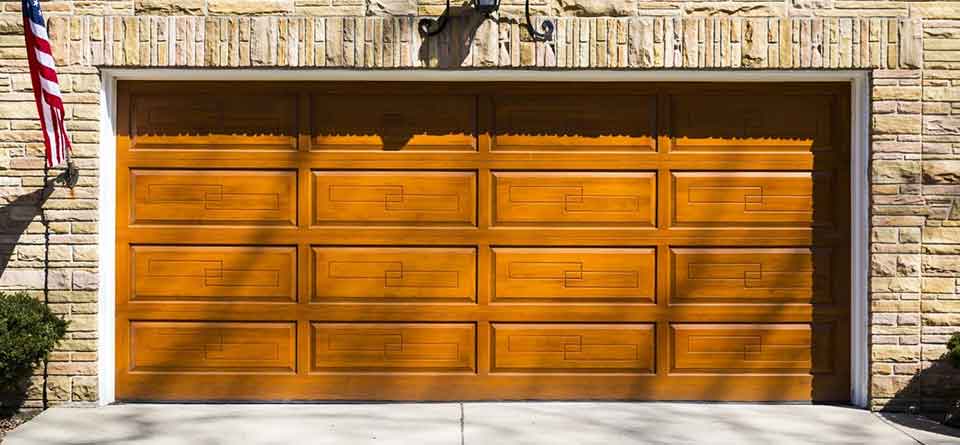Your garage door is only as good as the care and attention you give it. Lubrication is an essential part of garage door care and maintenance. Without it, you’ll find yourself having a hard time opening and closing your garage door in anything resembling a smooth fashion. The following offers an in-depth guide on the importance of lubrication and how you can successfully lubricate your garage door.
Why Lubrication is Essential
Just imagine what would happen if your garage door was never lubricated. For starters, you wouldn’t be able to open and close your garage door smoothly thanks to the direct metal-on-metal contact experienced by your garage door’s hinges, bearings, and other moving parts.
These very same parts are also more likely to wear out faster, making it even more difficult to properly open and close your garage door. Lubrication benefits your garage door’s moving parts by adding a protective barrier against metal-on-metal contact, thus minimizing the amount of wear and tear those moving parts experience throughout their lives.
Without proper lubrication, your garage door would also be susceptible to rust and corrosion. Rust buildup can eat away at unprotected metal surfaces and cause rust-ridden components to fail long before their projected life expectancy. Lubricants offer a protective film that blocks moisture from exposed metal surfaces, thus preventing the conditions needed for rust to form.
Parts That Require Lubrication
Unsurprisingly, nearly every single moving component on your garage door will require lubrication at some point. Take your hinges, for example, which serve as the primary pivot points on your garage door. Your hinges will need ample amounts of lubrication to prevent damage caused through direct metal-on-metal contact.
Your garage door springs will also need a fair amount of lubrication, mainly to prevent friction that could deteriorate the springs over time. Lubrication also gives your springs a protective layer against rust-causing moisture. Lubrication can also help reduce spring chatter, especially as the garage door springs age.
There are plenty of other components that’ll also need constant lubrication throughout your garage door’s life, including:
- Ball bearings inside unsealed steel and nylon rollers.
- Ball bearings inside garage door pulleys.
- Garage door opener chains and drive screws.
- Garage door lock assemblies.
Keep in mind that the garage door tracks don’t require lubrication. In fact, any attempt to lubricate them could cause the rollers to slip inside the track, preventing the door from opening and closing properly. Certain lubricants can also draw dirt and debris into the track, which could also compromise your garage door’s operation.
Using the Right Lubricants
If you’re looking for a good lubricant for your garage door, then white lithium grease will likely be your best bet. Not only is lubricant highly effective at preventing friction between moving surfaces, but it also forms a protective layer that resists moisture intrusion and the corrosive effects it often brings. Teflon and silicone-based spray lubricants are also ideal for protecting garage door components.
Heavy-duty grease can also be used to lubricate your garage door. This thick and highly durable lubricant provides a generous coat on complex moving parts, including chains and certain bearings. Unlike spray lubricants, applying heavy-duty grease can be a bit of a messy process. Heavy-duty grease also tends to harden with age and under extremely low temperatures.
Water-displacing products like WD-40 shouldn’t be used as lubrication on garage door components. Unlike most other true lubricants, water-displacing lubricants are actually solvents that primarily dissolve rust and grime. While these products briefly provide a lubricating effect to treated surfaces, the effect is usually short-lived. However, water-displacing lubricants can be used to help clean and prepare surfaces for other, longer-lasting lubricants.
When to Lubricate Your Garage Door
Frequent lubrication is essential for keeping your garage door in great shape. Under most scenarios, you should lubricate all of your garage door’s moving parts at least once a year. If you find yourself or others in your household using your garage door more than usual, then it’s a good idea to step up your regularly scheduled lubrication to a twice-yearly basis.
Timing is also important when it comes to lubricating your garage door. You don’t want to do it during the height of winter or summer, given that extreme hot or cold can make your freshly applied lubricant less effective at its task. It’s best to carry out your lubrication tasks during the spring or fall, when moderate temperatures allow for optimal lubrication.
If you’re hearing random rattles or squeaks from a garage door component, there’s nothing wrong with hitting the offending part with a small amount of lubricant. In most cases, a little lubricant is all that’s needed to take care of a problematic squeak or squeal. If that quick burst of lubricant does nothing to help your noise issue, then it may be time for a garage door expert to step in.
A little lubrication can go a long way towards protecting your garage door. Contact us at Raynor Door Company whenever you need a helping hand with your garage door maintenance.


